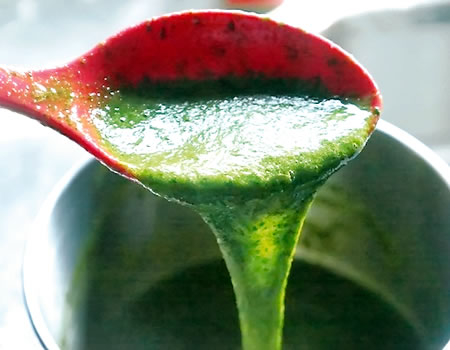

In traditional medicine, Corchorus olitorius, also known as jute or ewedu, is used to stop threatening miscarriages, facilitate labour, and encourage easy childbirth. Now, experts in a new study say its consumption by pregnant women also ensures that she has a baby with a healthy weight.
In a new study, researchers said that jute can help women prevent having a high birth weight, a reason for complications in pregnancy, including increased chances of a caesarean section, prolonged labour, severe bleeding after childbirth, and birth injuries at delivery time.

The research looked at the components, toxicity, and effect of the jute leaf extract (COLE) on reducing macrosomia in rats and discovered that it lowered the birth weights of pups in rats without changing the normal workings of the body that have happened or are going to happen in rats.
The study, in the Journal of Ethnopharmacology, therefore declared that jute leaf may be of value in the control of high birth weight in pregnancy to facilitate easy delivery and prevent complications associated with high birth weight.
The term macrosomia is used to describe a newborn with an excessive birth weight. Babies with macrosomia weigh 4.0 kg or more. On average, babies weigh between 2,500 and 4,000 grammes. Causes of macrosomia include genetics, diabetes, and obesity in the mother.
Several foods are known to be major players in weight gain. Also, reports also exist on different forms of plant sources that have weight-lowering effects. Leafy green vegetables are specifically known for their weight-lowering, anti-obesity, and lowering the cholesterol and fatty content of the blood.
Due to toxicity concerns and the side effects of synthetic drugs on both the mother and the child, foods from plant sources remain the safest and most encouraged strategy for dealing with weight issues in pregnancy.
Corchorus olitorius, a common green leafy vegetable that in Igbo is called ahihiara, is consumed in Nigeria with a hypothetical and unverified weight-lowering effect, even though there is documented evidence of its cholesterol and lipid-lowering effect.
In Nigeria, jute leaf has also been listed as one of the plants used to treat varying degrees of menstrual pain. Due to the belief that the plant has a rich iron and folate content, decoctions of its leaves are traditionally used to treat anaemia.
For the study, a single dose of the jute leaf extract was administered for its toxicity test, and the rats were monitored for 14 days to see if it was safe for use.
In the sub-acute toxicity study, rats were treated with the extract for 28 days, and its effect on important body organs like the kidney and liver, as well as the blood was also determined.
In the pup birth weight study, treatment of pregnant rats lasted until the birth of pups and continued for an extra four weeks. Rats in group one served as a control, whereas rats in groups two, three and four received daily doses of 200, 400, and 800 mg/kg body weight of jute leaf extract, respectively.
Among other things, they found that jute leaf extract decreased body weight and increased red blood cell, packed cell volume, and haemoglobin values when compared with the control.
In addition, it did not cause any significant changes in other biochemical (liver and kidney) parameters when compared to the control but decreased total cholesterol, triglycerides (fat), low-density lipoprotein cholesterol, and increased high-density lipoprotein cholesterol when compared with the control.
The birth weights of pups were significantly decreased in the jute extract-treated groups when compared with the control, but the observed difference was terminated by the fourth week of weaning.
In the blood, cholesterol is transported by lipoproteins known as high-density lipoprotein (HDL) and low-density lipoprotein (LDL).
High levels of LDL cholesterol, also termed bad cholesterol, raise the risk for heart disease and stroke, but its effect on the body is countered by high-density lipoprotein (HDL), or good cholesterol, that mops it up from the arteries.
Previously, researchers said jute leaves can facilitate childbirth and reduce associated pain because they have a significant relaxing effect on the muscles of the womb and the passageway of the digestive system, with good analgesic and anti-inflammatory activities comparable to standard drugs used.
In the Journal of Ethnopharmacology, jute leaf extract at the doses applied significantly inhibited the spontaneous wavy contractions in the muscles of the womb, lowering the severity of contractions in a dose-dependent manner.
Read Also: Reports of bandits threatening Niger residents, false — Police








